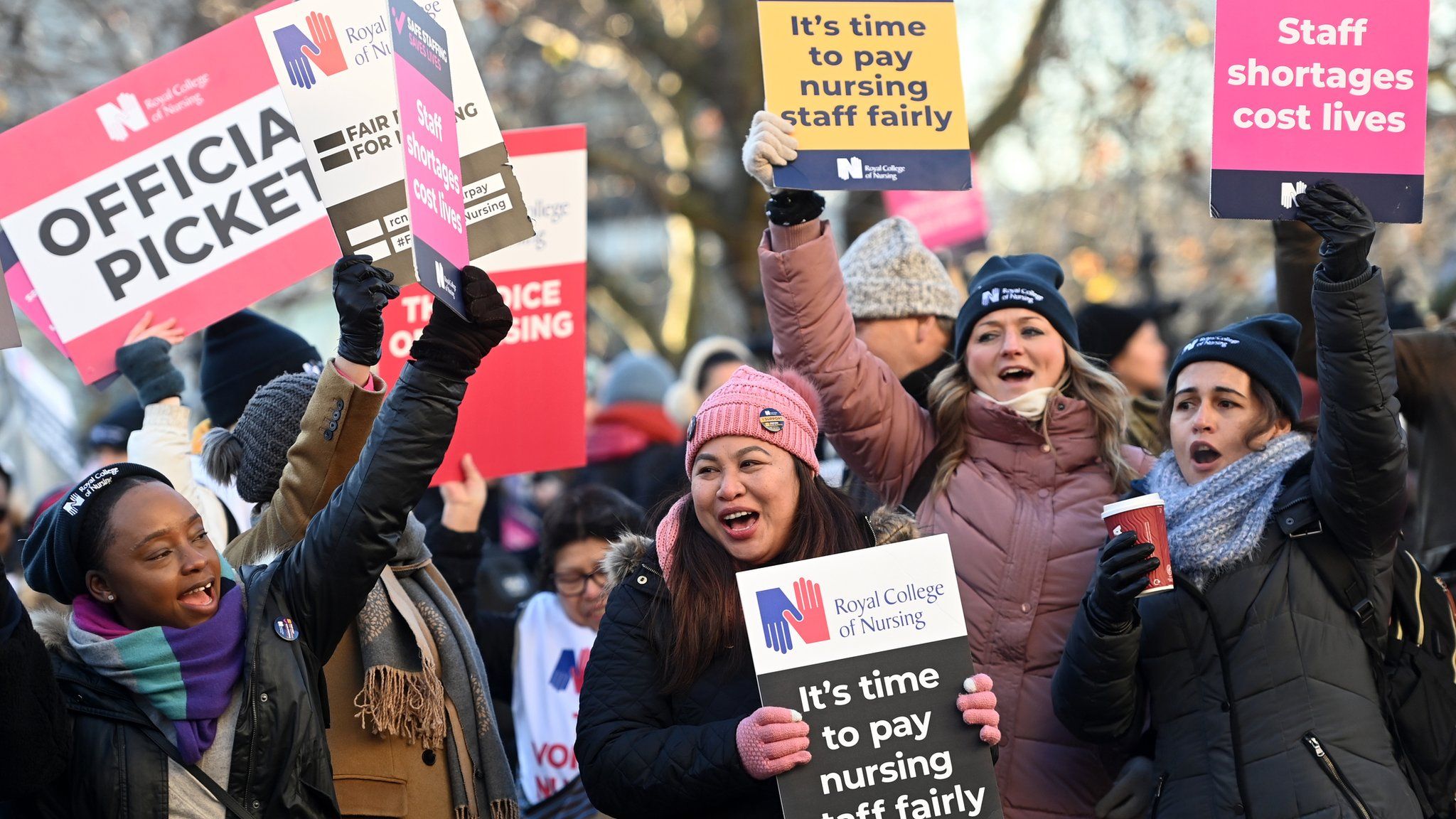ARTICLE AD BOX
 Image source, EPA
Image source, EPA
By Reality Check team
BBC News
Nurses in England, Wales and Northern Ireland have taken industrial action over pay, in the biggest strike in NHS history.
Health Secretary Steve Barclay has defended the pay offer made to nurses in England, emphasising it has based it on recommendations by an independent pay review body (PRB).
How is this body driving the pay decisions and is it really independent from the government?
What is a pay review body?
The salaries of NHS staff, as well as other public-sector workers such as police officers, teachers and the members of the armed forces, are recommended by eight pay review bodies.
They cover 2.5 million workers - about 45% of public-sector staff - and a pay bill of around £100 billion.
The PRBs are made up of economists and experts on human resources, with experience in both the public and private sector and are appointed by the relevant government department.
The NHS PRB has eight members. It has been led by Philippa Hird since 2017. Until 2009, she was group human resources director of media firm ITV and had previously held general management and HR roles in Granada Group.
The government website says: "The appointments are made on merit and political activity played no part in the decision process."
The government also decides on remuneration for the members of the PRBs. For the NHS PRB, it is currently £350 a day for the chair, for preparation and attendance of meetings, and £300 for the members.
How does a pay review body make its recommendations?
The body takes evidence from a number of interested parties.
This includes relevant government departments, as well as unions and expert organisations, before they come to a recommendation on how pay should change each year.
The government does say what pay award it wants as part of its evidence submission and it determines when it will respond to and publish the reports of pay review bodies.
The recommendation from the PRB is not legally binding.
The government usually accepts the recommendations, but in 2014 Jeremy Hunt, the then health secretary, rejected the NHS PRB's recommendation.
In July 2022, the government accepted in full its recommendation to give all NHS workers a pay rise of roughly £1,400 this year, worth about 4%, on average, for nurses.
The Royal College of Nurses (RCN) wants the government to "rethink" this and is asking for a pay rise of 5% above the RPI rate of inflation - which adds up to 19% currently.
The government says it will wait until the NHS PRB makes its next recommendation in 2023.
As for the other PRBs in 2022, the government accepted in full pay recommendations from five of them and rejected parts of recommendations by two others - the Prison Service PRB and the Senior Salaries PRB - according to an Institute for Government report.
Is it fully independent in its recommendations?
There are, however, government-set constraints that the pay review bodies have to take into consideration when making their recommendations.
The NHS pay review body - like other bodies which recommend pay for other public sector workers - has to work with the funds available to the department.
In the remit letter to the chair of the NHS Pay Review Body, Health Secretary Steve Barclay said the body should take into account when forming recommendations:
- the NHS budget which has been set for the next three years
- the government's inflation target
Ben Zaranko, from the Institute of Fiscal Studies, told Newsnight the remits of the pay review bodies should not include managing the economy-wide level of inflation. He said they should be more narrowly focused on "ensuring that we can attract, retain and motivate public sector workers in the places where we need them".
The NHS PRB recommendations were announced in the summer, but the work that underpinned them took place earlier in the year, raising questions over whether its decision is now out of date because of the rapidly changing situation regarding inflation and other factors.
The chair of the Health Select Committee, Conservative MP Steve Brine, told the World at One on Radio 4 that the PRB made its calculations "before the war [in Ukraine] started in February" and recommended "sending it back to the pay review body to have a look".

 2 years ago
25
2 years ago
25








 English (US) ·
English (US) ·